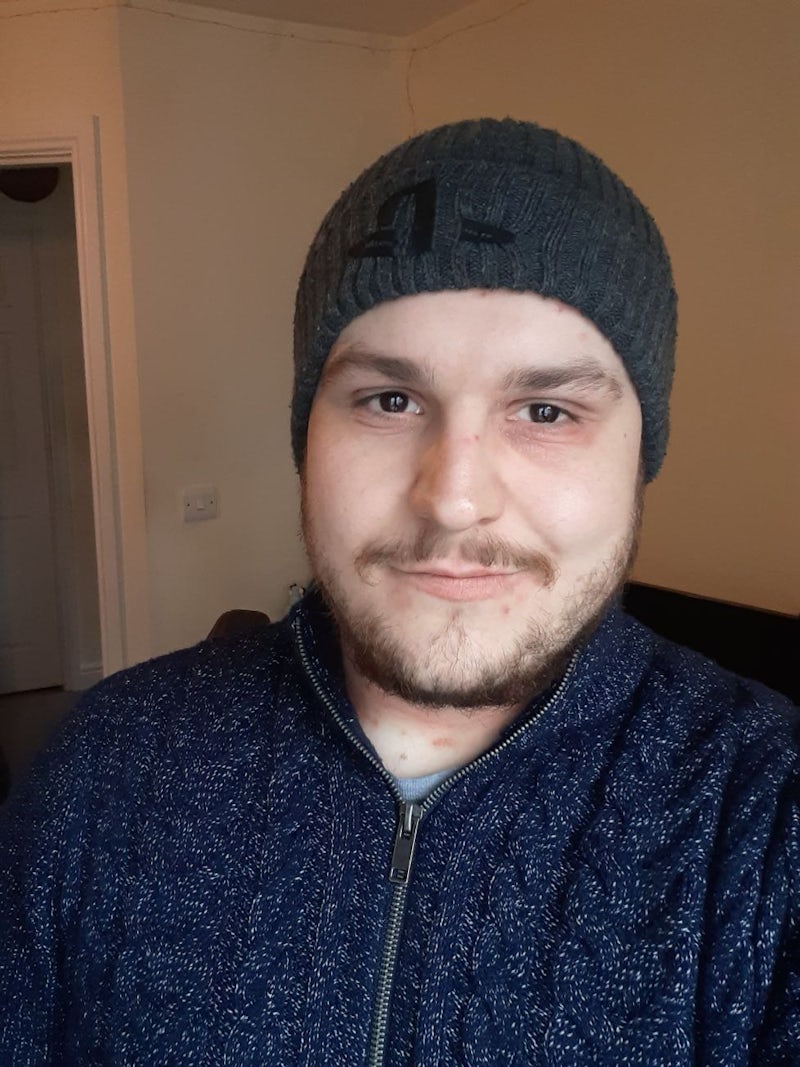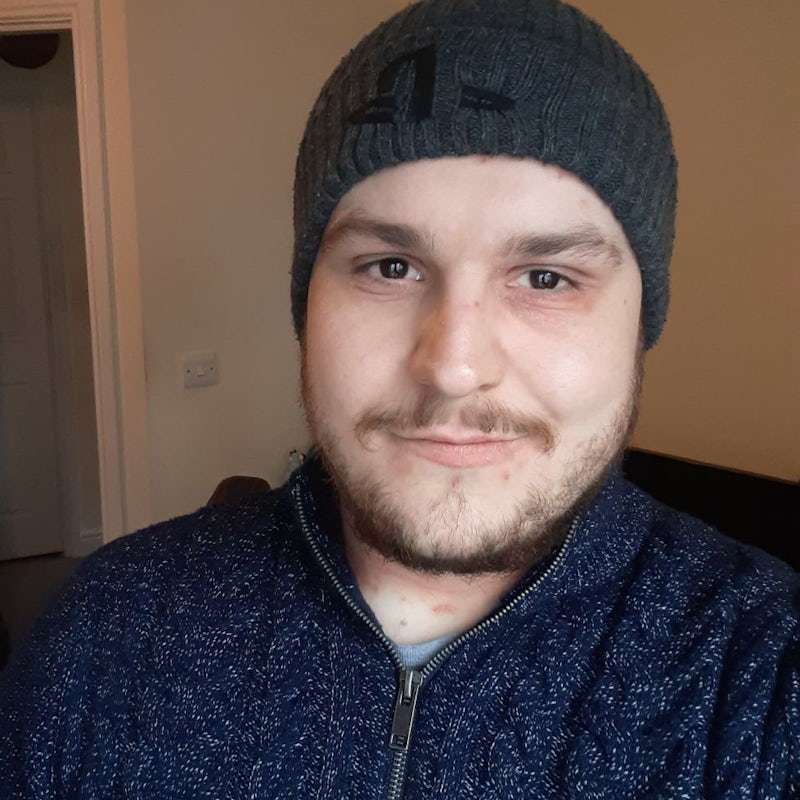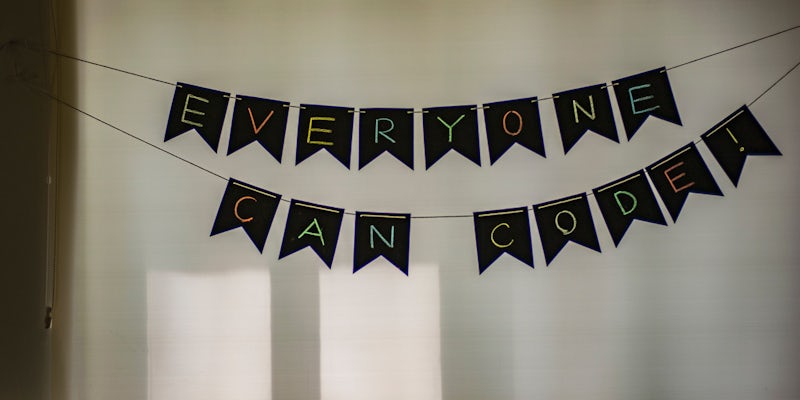Opinion
It’s never too late

This is for everyone out there who feels left behind, or like it’s too late to start.
In primary school, I was told (quite bluntly) by my year 5 teacher: “In the future, half of you will be doing jobs that don’t exist yet.” Everyone knew the future of technology defined our lives, but other than a few poster campaigns about how to deal with ‘cyber-bullying’, there wasn’t much they could do to prepare us for how much things would change; how social media would permeate our lives, both public and private, and how to survive in a job market that demands everyone be good at everything.
We now live in a world where owning a smartphone is just as important as food, self-driving cars search the internet for directions, and you can speak to your phone to ask what the weather’s going to be like. Technology has improved our lives in so many ways, while it has bitterly neglected us in others. Whenever I see ‘accessibility’ options listed just above the ‘user manual’, and way below ‘privacy’ and ‘wallpapers’, I can’t help but get the feeling the designer sees accessibility as something optional, rather than something integral to the interface between human and machine. I think this is because, in the rush to be the first, technologies that dominate our lives were designed to connect with as many people as possible (as they are so fond of telling us), but this best suited people like them. If you struggle to use a phone or computer, we’ll leave you the consolation prize of a few special settings, but the rest of the world will move on quite happily without you.
If any of this sounds familiar, I want to tell you that you aren’t alone.
The world is finally beginning to wake up to the need for elegant, respectful, inclusive technology and software suited to the whole spectrum of humanity, not just a small, able-bodied and neurotypical subsection of it.
I’ve lived with several disabilities my whole life. Thankfully, none were life-threatening, but they were all just enough to make me ‘fall through the net’ on more occasions than I can count. In the past, I have been told to fill out long, multi-page online questionnaires to discuss how dyslexia affects my life. My pursuit of medical care has been halted several times because I was sent to a different hospital for a diagnosis and the system ‘hadn’t updated yet’, leaving me to wait months without progress. When I dropped out of university, relapsing into depression, it came out that my tutors had been unaware of my diagnoses of depression and Asperger’s; I had made certain the staff would log them on my file, but my tutors weren’t told face-to-face, so when something in their system was updated, overwritten, or perhaps just failed entirely, my needs were lost. I have been withheld government disability support because I couldn’t access my claim online. For the sake of brevity, I won’t list any more.
The common factor in all of those incidents wasn’t just technology, or necessarily human error; computers do exactly what you tell them to do, and the people involved had done everything that was asked of them. The issue is the chronic oversights in design that make ‘edge cases’ like mine the rule rather than an exception. Oftentimes, when I tell people of my disabilities, they are surprised. ‘Really?’ They ask, as if to say it’s a miracle I’ve gotten this far while bearing so much; I can only imagine what my life would be like if all these system flaws didn’t get in the way, and I can only imagine how impossible it is for someone with disabilities worse than mine.
Technology reflects the people who make it, which is why we need people from all backgrounds, all levels of ability, and with a whole range of experiences guiding them to play a part in designing the future. The problem with that is that so many people are like me; so many people have been too busy dealing with the burden of their disabilities to even contemplate taking on a career in tech, and if they are lucky enough to recover control over their life, it’s too late for them to begin their training.
I’m here to tell you it’s not too late, you are not alone - and not only that: you are worthy.
With the help of a bursary from Fruition IT, I am now studying remotely on a course at Northcoders. This gives me the flexibility to study while taking care of people in my life. It took me a lot of work to get to a stage in my life where I could even attempt such a course, but from everything I’ve seen so far, I wish I had known about this course much sooner. Their attention to ‘special’ - or what I would prefer to call ‘individual’ - needs has been evident from day one. Unlike my experiences at school, they encourage us to fail as quickly and as often as possible (literally, in the case of Test-Driven Development), because this is the first step to learning how to succeed. The course is engineered to uplift anyone, even providing pre-course material to prepare you if you have no coding experience whatsoever. Furthermore, it’s every day that I talk to people of different colours, cultures, and creeds, all of us brought together by the desire to learn how to build software, and I can’t wait to see what the world we build together will look like.
In summary, even if you’re only interested in the idea of programming, that’s enough to start your journey. Be brave, and look for a course, because there will be one ready and waiting for you with the sole goal of giving you everything you need to flourish.
Please don’t give up. We need you.

Max Parker
Student




